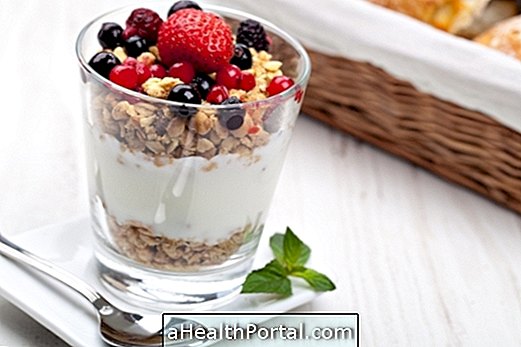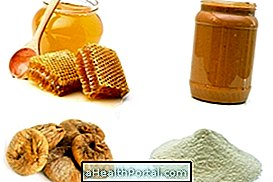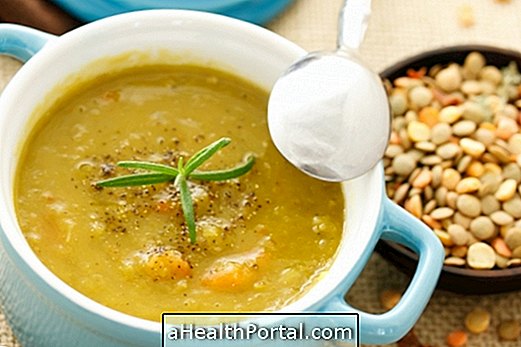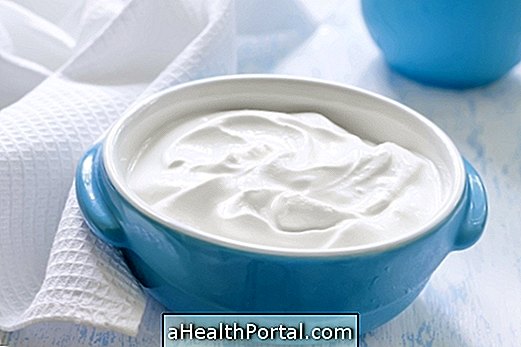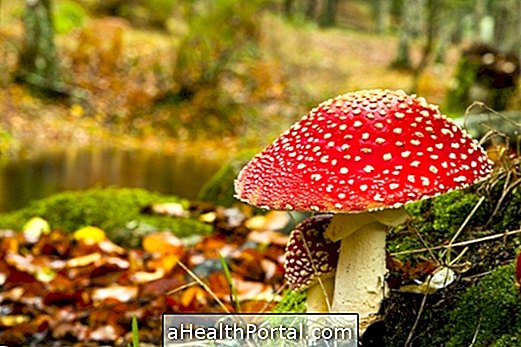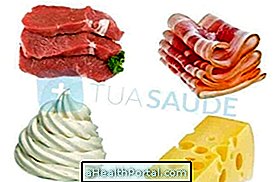The onion, a popular food that is used as a seasoning in most dishes, is also great for preventing and fighting hypertension and diseases related primarily to blood circulation and heart like high cholesterol or triglycerides.
Although eating large amounts of onion can irritate the stomach and cause gas, it does very well to health in general. There are many types of onion, such as purple or shallot, which are the most popular, and which can be eaten, raw in the salad, canned, sliced in baked, chopped in rice and even minced in sauces to be eaten disguised by who does not like its texture.
What is the onion used for?
Using onion in food preparation increases the nutritional value of the meal because it is very rich in medicinal properties due to the functional ingredients that it possesses. So some of the main benefits of onion are:
| Health Benefit | Functional Nutrient |
| Fight colds, colds, tonsillitis and cough, asthma and allergies. | Quercetin |
| Lower Cholesterol | Saponin |
| Treat hypertension | Aliina |
| Antioxidant that prevents premature aging with protective effect on cancer (higher amount in purple onion) | Anthocyanin |
Nutritional information of onion
The onion is rich in minerals such as calcium, potassium and magnesium, it also has large amounts of vitamin C and so should be consumed raw whenever possible to prevent loss of nutrients and antioxidants.
Nutritional information in 100 g of onion:
| Raw onion | Cooked onion | |
| Vitamin A | 2 mcg | 2 mcg |
| Vitamin B1 | 60 mcg | 35 mcg |
| Vitamin B2 | 45 mcg | 25 mcg |
| Vitamin B3 | 0.36 mg | 0.17 mg |
| Vitamin C | 9.7 mg | 6.4 mg |
| Calories | 31 cal | 40 lime |
| Protein | 1.6 g | 1.2 g |
| Lipids | 0.3 g | 1.8 g |
| Calcium | 32 mg | 24 mg |
|
Iron | 0.5 mg | 0.2 mg |
| Phosphor | 44 mg | 16 mg |
The onion also has an excellent antibacterial power and so a very popular use is to leave 1 onion cut in half in the same room as the individual with the flu. It is bactericidal and purifies the air, used to control the evolution of respiratory diseases both to prevent the worsening of the flu and colds. A good way to take advantage of this benefit is to leave 1 onion cut in half in the same room as the flu person.
In addition, onion is an excellent natural remedy for treating cough due to its expectorant property which helps in eliminating phlegm and cleaning the airways, bringing relief to coughing and nasal congestion in both adults and children. Learn how to prepare an excellent onion syrup here.
Onion Sauce Recipe for Salads and Sandwiches

Ingredients
- ¼ raw onion
- ⅓ cup olive oil
- 2 sprigs of mint
- 1 teaspoon of vinegar
- 1 teaspoon sesame
- 1 pinch of brown sugar
- Salt to taste
Method of preparation
Chop mint and onion well. Mix all ingredients and refrigerate until ready to serve.
Onion Muffin Recipe

Ingredients
- 2 cups of rice flour (or common wheat flour)
- 3 eggs
- 1 cup milk
- 1 tablespoon olive oil
- 1 tablespoon baking powder
- 1 teaspoon of flaxseed (yellow or brown)
- Salt and oregano to taste
- 1 chopped onion
- 1 cup white cheese
Method of preparation
Beat the eggs, olive oil, milk, cheese and seasonings in the blender. In a separate bowl, combine the flour, baking powder, flaxseed and chopped onion. Use individual cups and bake in the preheated medium oven for 25 to 30 minutes. To decorate, add a little cheese over the dough and leave in the oven for another 3 to 5 minutes, or until golden.
Onion Preserves Recipe

Ingredients
- ½ cup apple cider vinegar;
- 1 tablespoon of sugar;
- 1 and ½ tablespoon of coarse salt;
- 1 onion purple.
Method of preparation
Wash and peel the onion and then cut it into thin slices. Mix the vinegar, sugar and salt in a small glass jar until the salt and sugar dissolve completely. Finally, add the onion to the mixture and close the jar. Store the onion in the refrigerator for at least 30 minutes before consuming.
Ideally, the onion should stand for 2 hours before consumption and can be used until about 2 weeks after preparation, although the taste is best during the first week.
